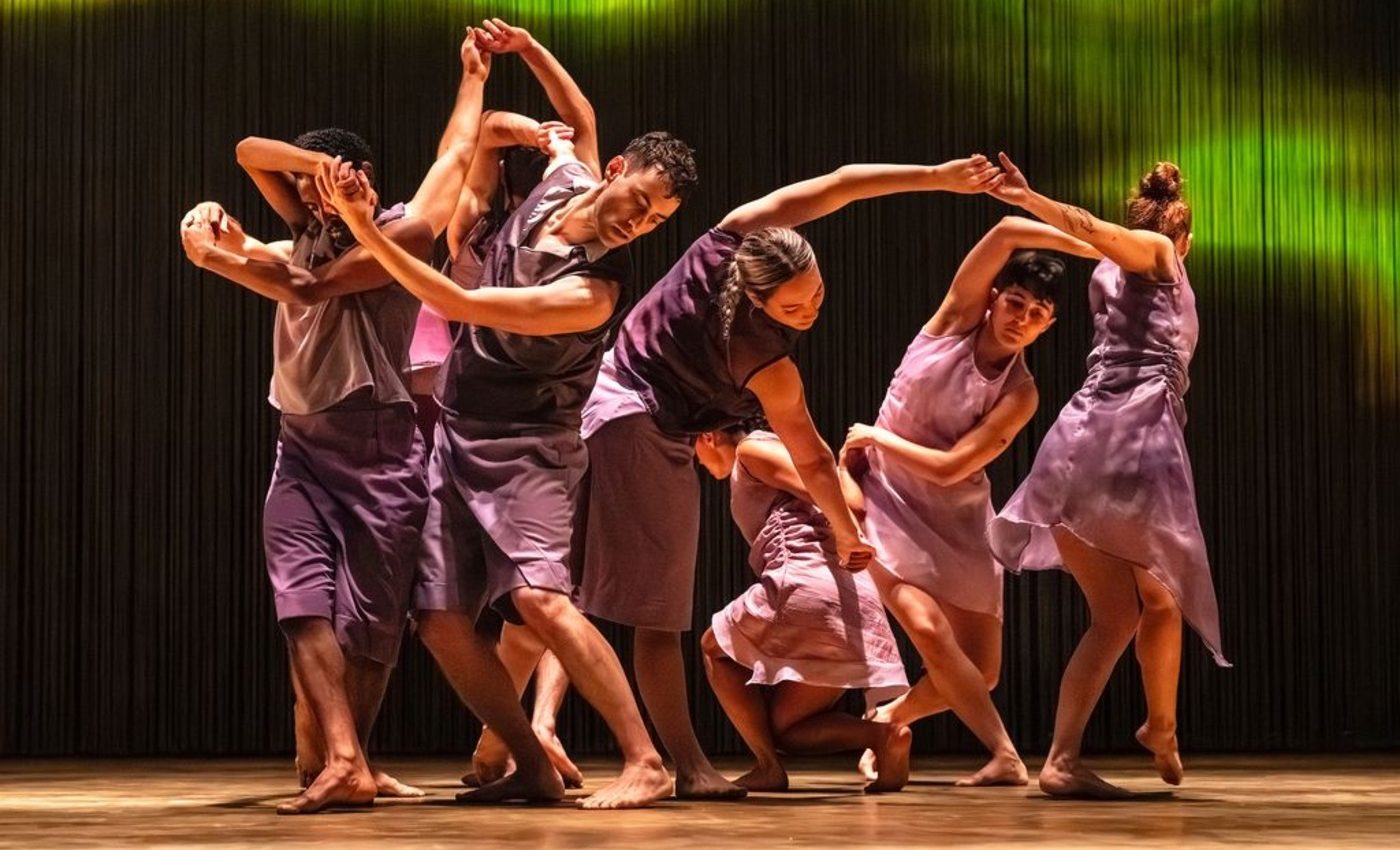Our Shakespeare: We Caliban at the Warwick Arts Centre
There is a memorable moment, from the 2012 Summer Olympic opening ceremony. Isambard Brunel (played by Kenneth Branagh), holding a book to his chest, stands in front of a crowd of industrialists, their black top hats striking against the “green and pleasant land” of rural folk. He starts his speech “Be not afeard”. It’s a great image; the egalitarian Jerusalem remade by the forces of modernity. This is Caliban’s speech, from Act Three, Scene Two of The Tempest. Fitting that the host nation would make a grand highlight of its most celebrated writer. You can almost hear Ben Jonson’s elegy through Branagh’s roaring tones “Soul of the age! The applause, delight, the wonder of our stage! My Shakespeare, rise!” When We Caliban began, as dancers walked across the glossy sliver curtain, all that exception, from Ben Jonson to the Olympic opening ceremony, was going through my head. Shakespeare’s plays are so embedded in the cultural canon that it’s hard to dig down and find new chasms to mine. This show, billed as “an inventive, sideways look” has the intuition to start digging.
Caliban becomes less a character and more an identity; the group moving in time at the start gets broken down to two dancers, yearning back and forth to each other’s touch
The idea that pervades this production, that of showing The Tempest from the point of view of Caliban, the play’s half human, half sea-beast antagonist, is not wholly original. Post-colonial study and production of Shakespeare’s late play almost always bring the play’s undertones, personified by Caliban, to the forefront. We Caliban not only brings this academic framing to life, but it does so in every one of its dimensions. Opening with a unified, huddled dance imagines what this remote island was before Prospero and Miranda were shipwrecked on it. Jeyasingh Dance takes mostly from classical forms in the first scene and for most of the show. This works wonders and feels natural. Caliban becomes less a character and more an identity; the group moving in time at the start gets broken down to two dancers, yearning back and forth to each other’s touch.
The colonial experience is not forced upon the play; it is grown out of it. Direct allusion is made to a proclamation by Elizabeth I, bestowing royal favour on those ships sailing to future colonies
Particular attention is paid to the implied relationship between Miranda and Caliban. Playful duets that the couple perform are the show’s most beautiful dance pieces; perfectly choregraphed with style and tone that could be picked out of a ballet. This serenity is smashed when Prospero finds out. It’s a shattering yet inevitable conclusion. Shakespeare’s protagonist does his mastering; a cruel crackdown on this innocent group of Calibans.
The colonial experience is not forced upon the play; it is grown out of it. Direct allusion is made to a proclamation by Elizabeth I, bestowing royal favour on those ships sailing to future colonies. It’s a hard truth that this elegant dance does not shy away from. Along with bibles, rum and Shakespeare plays, settler colonists to Virginia, Surat and Bermuda brought out their swords first.
Jeyasingh Dance, along with Dramaturg Uzma Hameed, find new dramatic possibilities within one of Shakespeare’s most ambitious texts
We Caliban is a well-suited show. The pace is exact, only lasting an hour long. And yet it isn’t compacting The Tempest. Jeyasingh Dance, along with Dramaturg Uzma Hameed, find new dramatic possibilities within one of Shakespeare’s most ambitious texts. Movement crystallised through perceptive snapshots, and a core theme of disrupted unity makes this dance show streamlined and open to everybody. If Caliban is multiplied, so is the Warwickshire poet. We Caliban suggests “Our Shakespeare”, who both looks on chillingly at the rise of an empire and writes a swan song that declares the basic dignity to dream for better tomorrows, even to his most unfortunate of characters.

Comments